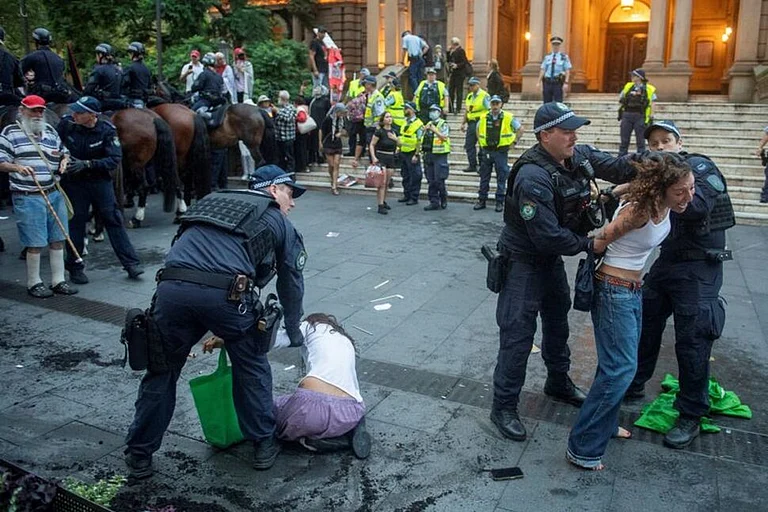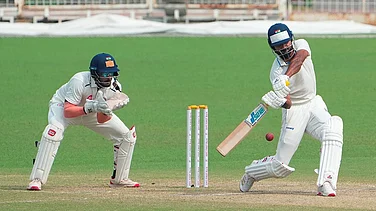Sometimes, just sometimes, we are left clinging to sporting images that wewould rather forget. It is a good wager that the Zidane head-butt from the FIFAWorld Cup 2006 final has dominated discussions throughout Monday. Why wouldZinedine Zidane who displayed the calm of the Buddha and the agility of asamurai blow it all in those charged up final moments? Why would a hero want towear the tag of villain on such a big stage?
What is it that caused the French captain knock Italian defender MarcoMaterazzi over with just over than 10 minutes left for the match to spill overto penalty shoot out? Someday in the future, Zidane will explain what reallymade him lose his cool and head-butt Materazzi, but until we hear from theFrenchman himself everything else will be in the realms of speculation.
There have been suggestions that it would have taken no less than a racistcomment by Materazzi for Zidane to do what he did – walk back towards the bigItalian defender and head-butt him in streetfighter style. Zidane would haveleft the stamp of genius on the World Cup legend, making mothers want their sonsto take after him for his gifts and impeccable behaviour, but his bizarre finalact will have made them think again.It can only be hoped that Zidane does nothave to wake up too often, breaking into cold sweat with Materazzi’s voice andimages haunting him. The Zidane legend surely deserves better recall than asilly and despicable head-butt. His dribbling and passing skills, with hisinstinct for laying the ball at the feet of an attacking team-mate, have rarelybeen matched and it must be remembered that he was one player whose personalitywas not overshadowed by his coach.Indeed, the World Cup was a competition wherecoaches and their strategies held centrestage, with football increasinglyresembling basketball where I believe coaches play a chess game with the playersas their pieces on court. And while we will remember it for great moments ofmagic, including some that Zidane scripted, he also gave us something stark anddark to remember it for.
Ironically, a few hours before the final was due to kick out, a friend calledand waxed eloquent about Zidane. We discussed how the 34-year-old magician withfeet for a wand retained his composure through thick and thin. We discussed hiscalm, unexcited eyes that we got to see at the end of the big games againstSpain, Brazil and Portugal when he changed shirts with rival captain Figo.

Yet, the tragic twist to his World Cup tale should not make him a villain.Zidane’s craft was there for all to see and France’s run to the final wasscripted with him as the pivot. There were not too many takers for France at thestart of the tournament and it was not until it made the second round that itbegan looking like the time that had won the World Cup eight years ago.We havelearnt to remember sporting heroes for their genius and their acts of valourrather their impulsive moments of madness. The provocation must have been gravefor Zidane to react in the manner he did. He was not the first football playerto head-butt a rival, nor will he be the last. But one doesn’t cite that hereto condone his deed. Nor is he the only sporting icon to have misbehaved on thebig stage.Why would that tennis genius answering to the name of John McEnroescream at the umpire at Wimbledon? Why would a masterly batsman called SunilGavaskar suddenly want to stage a walkout from a Test in Australia on being given out? At thecore of every supreme sporting achiever lies a simple human with a wide of rangeof emotions, the darker side surfacing at the worst possible moments.
Such questions remain unanswered. And in this case, we will have to wait fortime – and Zizou – to provide us the answers. Then again, like manymysteries of life, we may spend a lifetime and more in trying to discover whatsnapped on the night on which Zidane combined the calm of the Buddha and theagility of the samurai with the instinct of a streetfighter.

























